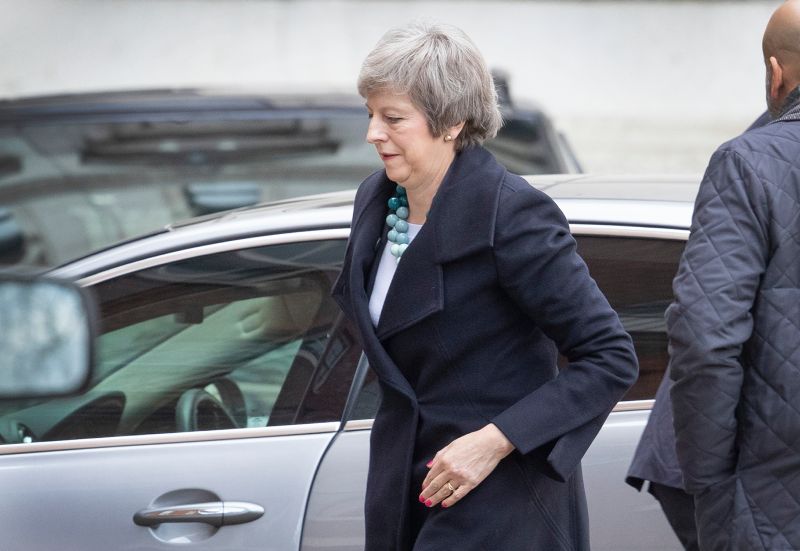
Pig producers are urging MPs to back Theresa May’s Brexit agreement ahead of a critical rescheduled vote in mid-January.
The prospects of the UK leaving the EU without a deal increased in December as the Prime Minister failed to gain the necessary parliamentary support for her agreement.
The vote was due to be held last month but was put on hold after May admitted she was set to lose.
The National Pig Association (NPA) and NFU have now described a 'no deal' Brexit scenario as a potential disaster for the sector.
As the sector enters 2019, pig producers find themselves in a position it has never been in before, according to NPA chairman Richard Lister.
“There is so much uncertainty in term of our trading relations – it is a worrying time for everybody,” he said.
He highlighted, in particular, indications that while UK exporters could face tariffs on shipments to the EU, the Government is planning to waive import tariffs to keep food prices low.
He added: “That is hugely worrying and would have a devastating impact on the sector. These people that espouse a no deal Brexit have no comprehension of what that involves.
“Until Brexit is sorted, there is a huge dark cloud hanging over us – the worst case scenario is horrendous,” he said.
“The tariff on a sow is 45p/kg. When sow slaughterers tell you under a zero tariff regime, they will be able to pay 2p/kg, rather than 60p/kg today, you know you are in trouble.”
Brexit is scheduled to officially take place in less than 90 days. And while the clock keeps ticking, the NFU said it is still unclear as to what will happen and when and how that will impact on British food and farming.
In its new year message, the union said leaving the EU with no deal will be 'catastrophic' and could have a 'devastating impact' on the millions of people working in the industry, 'threatening' livelihoods and 'severely undermining' farm businesses.
